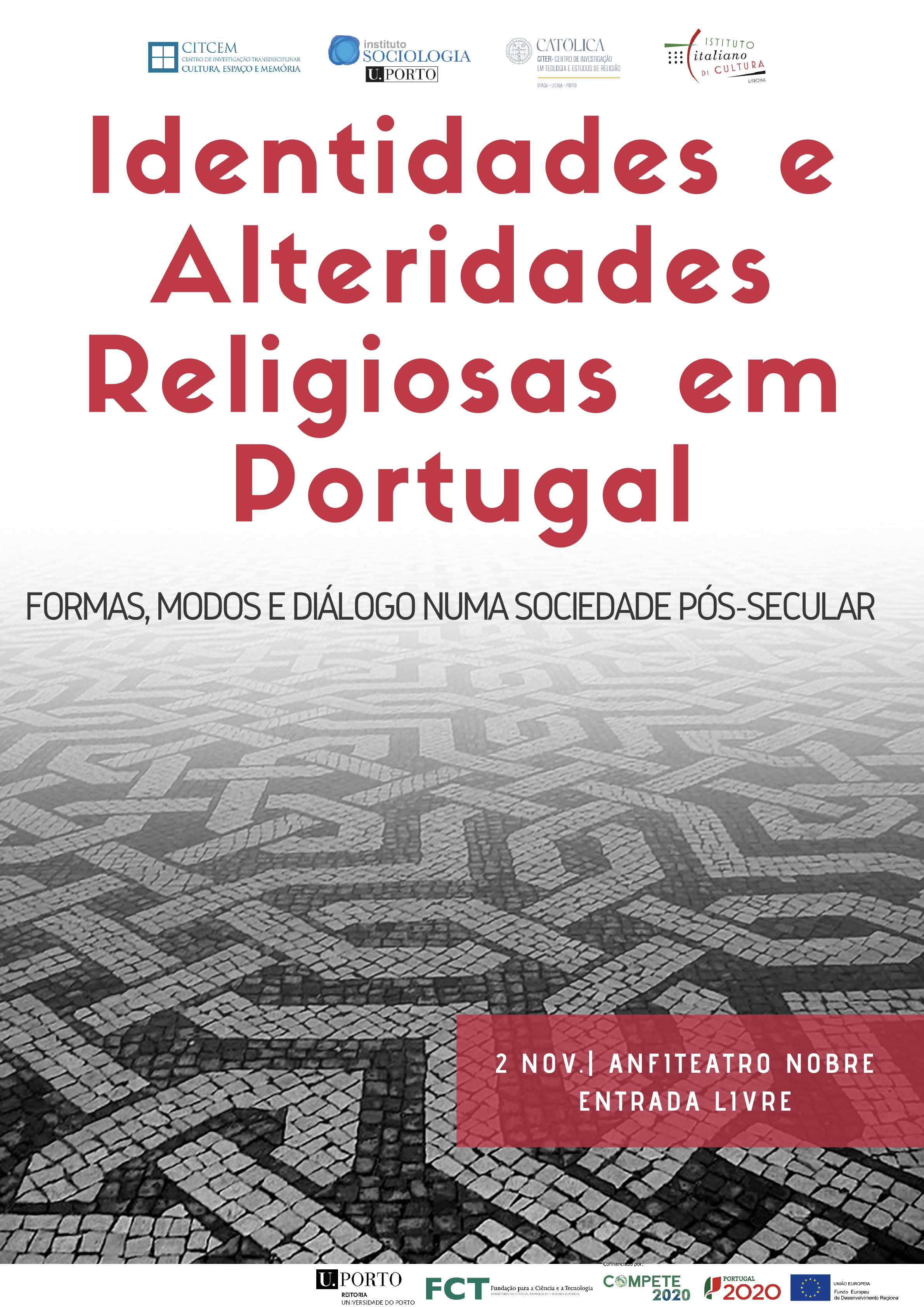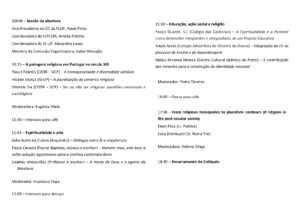Events

Local:
Start Date:
End Date:
Hours:
Organization:
Investigation Group
Event type:
Religious Identities and Alterities in Portugal
FORMS, MODES AND DIALOG IN A POST-SECULAR SOCIETY
The Treaty of Westphalia made the political map of Europe, from the 17th century onwards, establish a correspondence between nation and territory and religion. If the situation of proximity to political power and the mono-poly of the sacred placed Christianity, in its Catholic and Protestant branches, in a privileged position, in the long term, the national churches were the most affected by secularization.
Today, alongside the weakening of religious monopolies and the rise of more secular worldviews, or the decline of religious practice and belief, we are witnessing the global re-emergence of religion as a political and cultural force in the public domain, even within the secularized West.
This new type of presence of religion in the public domain has been called a post-secular era (Habermas, 2009) and warns that many European countries are challenged to deal with the continued existence of religious communities in increasingly secularized environments. The dichotomies typical of modernity, between the public and the private, the secular and the religious, the profane and the sacred, are becoming increasingly fragile.
Portugal, while preserving a strong religious homogeneity, also embodies the new trends. We have migrations, we have religions with a strong ethnic and/or national imprint, we have Catholic diversity, evangelicals and other religions acquiring new forms of visibility and intervention. And we also have the effervescence of social networks, a phenomenon that cuts across every church and religious group.
Organizing Committee
Helena Vilaça
Isabel Morujão
Francisco Topa

